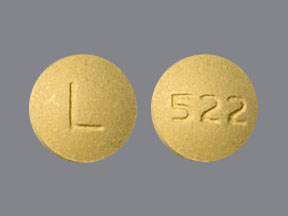
Brilinta Coupons & Savings Card – Discount Prices from $27.89
Brand for: Ticagrelor
My prescription
Edit
90MG, Ticagrelor (60 Tablets)
Select pharmacy

CVS
$27.89
COUPON PRICE
Albertsons
$40.30
COUPON PRICE
Walgreens
$69.00
COUPON PRICE
Walmart
$285.02
COUPON PRICEBrilinta savings card
Show this card to your pharmacist
CVS
$27.89
BIN
ID
PCN
GRP
019876
LH5C12580F
CHIPPO
LHX
Powered by
Related antiplatelet drugs prescriptions
More prescriptions for heart attack
Related antiplatelet drugs prescriptions
More prescriptions for heart attack
Price history for Brilinta (brand) & Ticagrelor (generic)
60 Tablets, 90MG
Average retail price for Brilinta
Average retail price for Ticagrelor
Average SaveHealth price for Ticagrelor
Our price history data is based on aggregated prescription data collected from participating pharmacies in America. Our prescription data updates daily to reflect the latest price changes. If you notice a missing data point, it means there wasn't sufficient data available to generate a monetary value for that date.
Over the last 12 months, the average discount price of Brilinta is $101.21 using the SaveHealth savings card. That's an average savings of 82.42% on Brilinta with our discount card.
*Retail prices are based on pharmacy claims data, and may not be accurate when we don't have enough claims.
Brilinta (Ticagrelor) dosage forms
Dosage Quantity Price from Per unit 60MG 1 Tablet $2.07 $2.07 60MG 30 Tablets $122.10 $4.07 60MG 60 Tablets $235.20 $3.92 90MG 60 Tablets $27.89 $0.47 90MG 1 Tablet $1.01 $1.01 90MG 100 Tablets $34.28 $0.34 90MG 1800 Tablets $313.94 $0.17 90MG 5400 Tablets $889.22 $0.17
| Dosage | Quantity | Price from | Per unit |
|---|---|---|---|
| 60MG | 1 Tablet | $2.07 | $2.07 |
| 60MG | 30 Tablets | $122.10 | $4.07 |
| 60MG | 60 Tablets | $235.20 | $3.92 |
| 90MG | 60 Tablets | $27.89 | $0.47 |
| 90MG | 1 Tablet | $1.01 | $1.01 |
| 90MG | 100 Tablets | $34.28 | $0.34 |
| 90MG | 1800 Tablets | $313.94 | $0.17 |
| 90MG | 5400 Tablets | $889.22 | $0.17 |
Is Brilinta a blood thinner or antiplatelet?
Brilinta is an antiplatelet medication. It works by preventing platelets in the blood from sticking together, which helps reduce the risk of heart attack or stroke.
Is Brilinta the same as Plavix?
Brilinta (ticagrelor) and Plavix (clopidogrel) are not the same, though both are antiplatelet medications used to prevent blood clots. They work differently in the body and may have different side effects and interactions. A healthcare provider can determine which medication is more appropriate based on the patient's specific medical condition and history.
Can you ever stop taking Brilinta?
The decision to stop taking Brilinta (ticagrelor) should always be made in consultation with a healthcare provider. Brilinta is often prescribed to prevent blood clots in patients with certain heart conditions, and stopping it abruptly can increase the risk of heart attack or stroke. A healthcare provider will evaluate the patient's specific situation and determine the appropriate course of action, which may include tapering off the medication or switching to an alternative therapy.
What blood thinner is comparable to Brilinta?
A blood thinner that is comparable to Brilinta (ticagrelor) is Plavix (clopidogrel). Both medications are antiplatelet agents used to prevent blood clots, though they have different mechanisms of action and may be chosen based on specific patient needs and medical conditions. Another alternative is Effient (prasugrel), which is also used for similar purposes. It is important for patients to consult with their healthcare provider to determine the most appropriate medication for their situation.
What foods should you avoid while taking Brilinta?
While taking Brilinta (ticagrelor), it is generally advised to avoid consuming grapefruit or grapefruit juice. Grapefruit can interfere with the metabolism of the medication, potentially increasing its effects and the risk of side effects. It is always best to consult with a healthcare provider for personalized dietary recommendations while on this medication.
